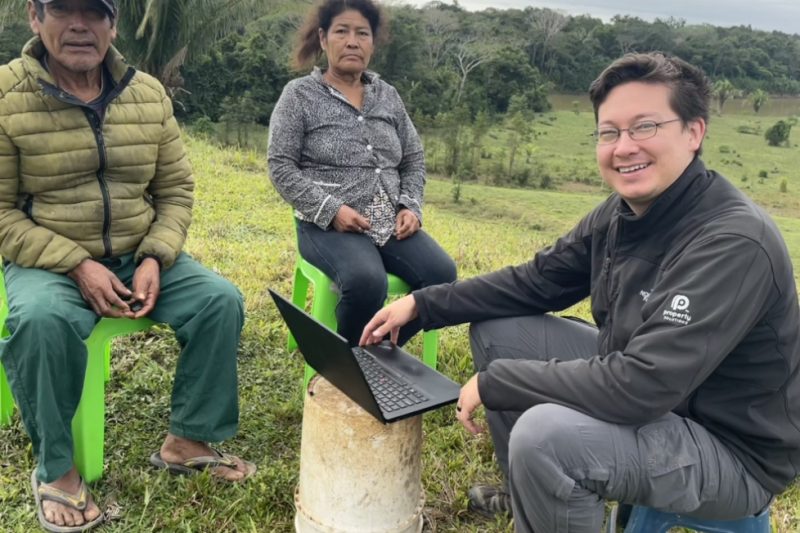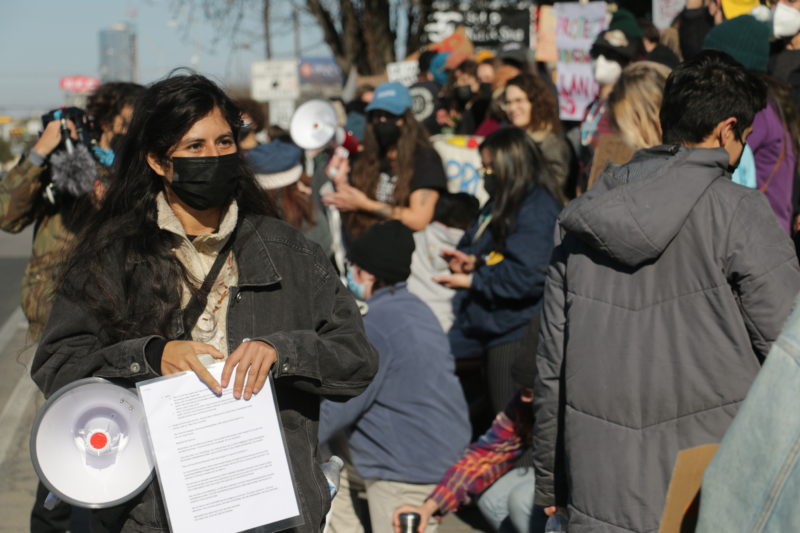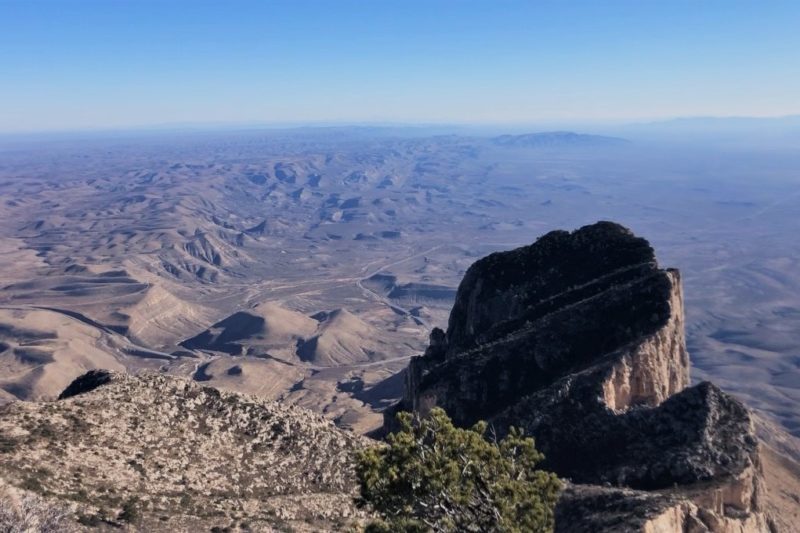


byMichael Nolan
Nestled deep in the Amazon basin, a makeshift house sits alongside a rustic nut storage facility. Two of the occupants of this house in Peru’s remote Madre de Dios District might be the last chance of survival for the endangered language Iñapari.
Meanwhile, over 3,000 miles away, a doctoral student is huddled over his laptop at the University of Texas at Austin. Barrett Hamp, a UT doctoral student in linguistics, has dedicated his research since 2019 to recording the indigenous language in Peru to prevent it from disappearing. “Once a language is gone, it’s gone. There’s no reviving it,” Hamp said.

byCristela Jones
Chanting “respect our existence or expect our resistance,” nearly 400 people protested outside an Austin bank Saturday to try to stop construction of an oil terminal on ancient Indigenous land near Corpus Christi.
“We are still here, and we are still fighting,” said protest organizer Chiara Sunshine Beaumont, a descendant of the Karankawa people who once lived on the Texas Gulf Coast.
Saturday’s protest followed months of efforts by Indigenous groups in support of the Karankawa’s objections to expansion of oil export terminals owned by Enbridge, a Canadian petrochemical pipeline company. Beaumont said her group chose to protest Saturday outside a Bank of America on South Congress Avenue because the bank is a large underwriter of Enbridge’s projects.

byBrooke Nevins
Take a couple steps off nearly any highway spanning its 270 million acres, and you’re bound to be trespassing on someone else’s property. Over 95% of the state’s land is privately owned, resulting largely from the removal of Native peoples in the 19th century. Despite its huge size and a history of hundreds of Indigenous tribes inhabiting its present-day borders, Texas has only three federally-recognized reservations – those of the Alabama-Coushatta, the Kickapoo and the Ysleta del Sur Pueblo. Hundreds of non-federally recognized tribal communities exist here, left without allotted land to practice self-autonomy or the funding to preserve cultural traditions.